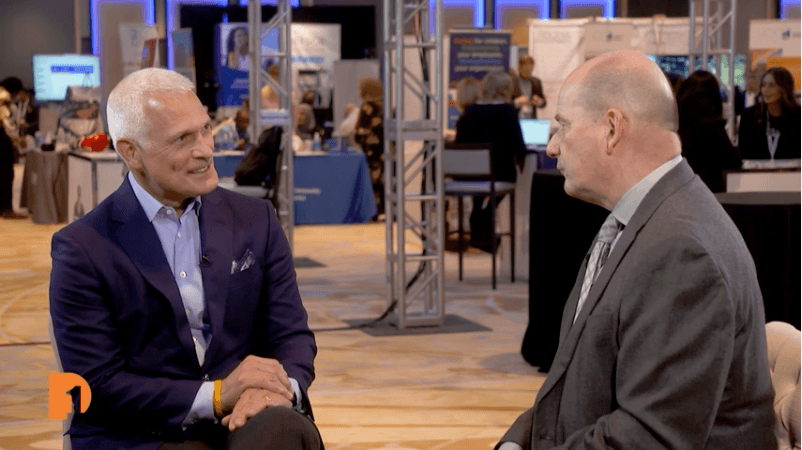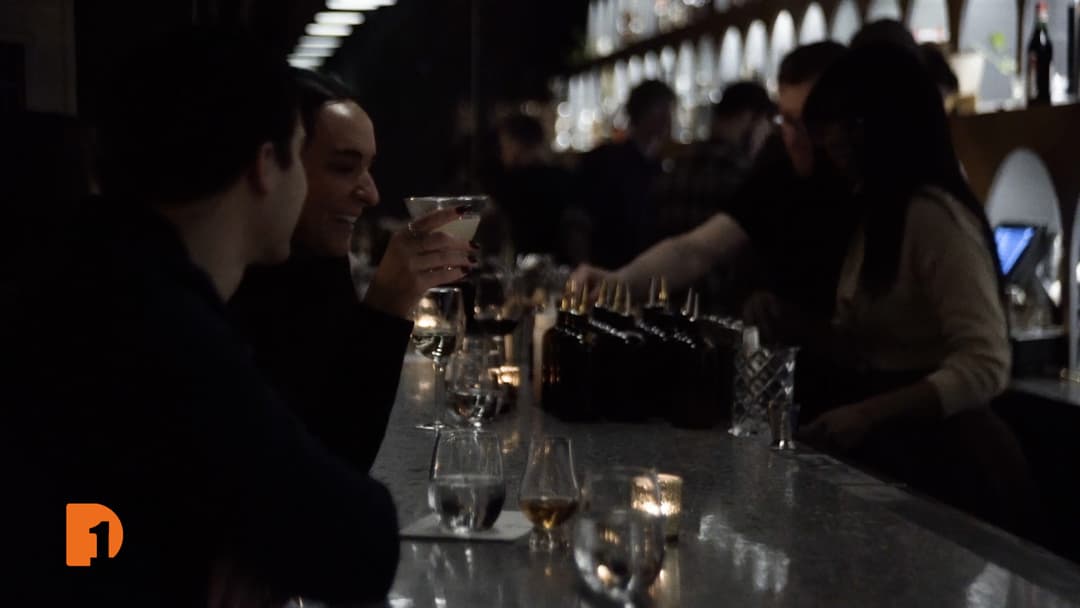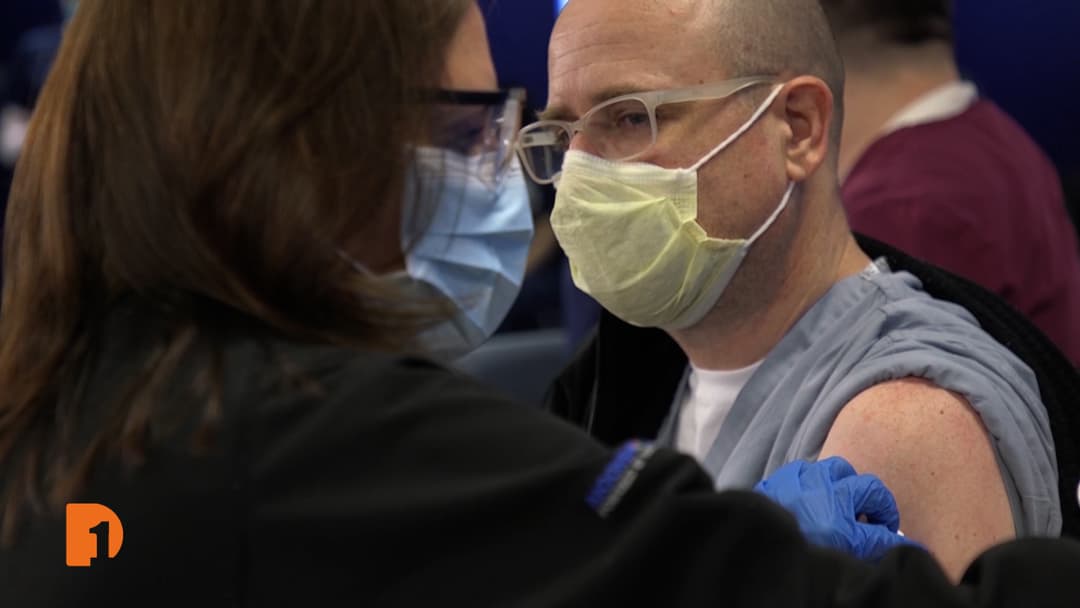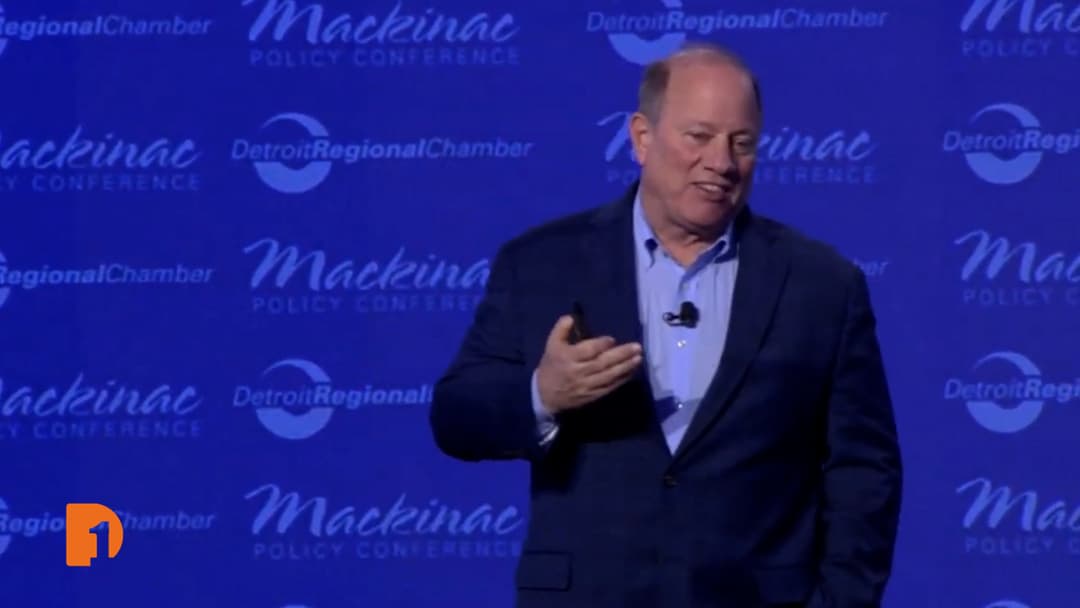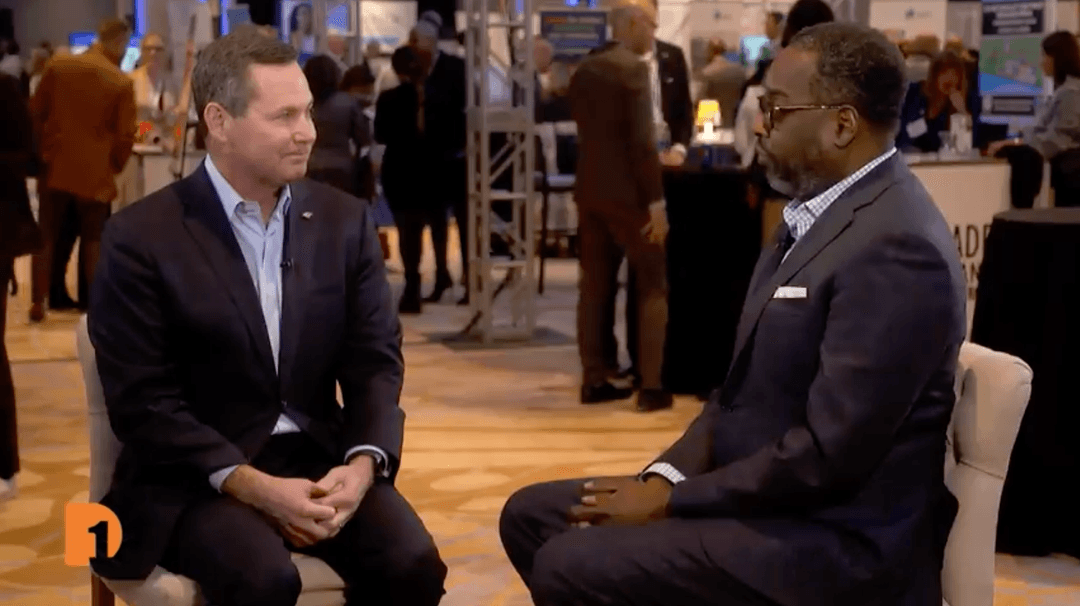Mike Duggan on the City’s COVID-19 Battle and Putting Detroit Back in Business
May 4, 2020
What are the steps to Detroit reopening? One Detroit contributor and Detroit News Editorial Page Editor, Nolan Finley, spoke with Detroit mayor, Mike Duggan, about the decreasing COVID-19 death rate and the effects of social distancing, how Detroit is reopening certain businesses while maintaining health precautions, the situation in Detroit hospitals when it comes to space and elective surgeries, and the city’s budget.
Read full transcript
Nolan Finley Mayor Mike Duggan, thanks for joining us today on one Detroit and the Detroit News. How are you weathering this–these new circumstances?
Mayor Mike Duggan, City of Detroit Well, weathering a lot better than I did three weeks ago when we had six hundred police officers on quarantine and our hospitals were overflowing with with patients. But things have come down dramatically that people that city have cooperated on the social distancing in I think a very good way. And we’re in a much better place today than we were three weeks ago.
Nolan Finley So you’re seeing a very positive trend now in in Detroit. Your last few press conferences have had more good news than bad. What’s made the difference here?
Mayor Mike Duggan, City of Detroit Yeah, the weekend was even better. We’re continuing to see major drops in in the death rate in this city. I don’t think there’s any question of social distancing worked. Detroit got hit probably harder and faster than anybody. You start around March 23rd, and we went from almost no cases to 40 and 50 people dying a day in 10 days. And you didn’t have a room on anywhere in the hospitals. People were being sent home that never should have been sent home. But people in the city have completely bought in.
And of course, nobody in the city has any trouble understanding that if you’re African-American, and you get this virus, you are two to three times as likely to die from it as a Caucasian. And I think people in this city are watching out for each other. And I’m hearing from my fellow mayors, who can’t believe we didn’t have to do a closure of the parks. We didn’t have to put in a curfew. But if you drive around Detroit, you’ll see a whole lot more folks out with masks than you, if you will, if you drive around suburbs.
Nolan Finley So where are we now in terms of next steps, Mayor? Where do you see the city going in terms of reopening?
Mayor Mike Duggan, City of Detroit Well, I think where we are today is where we’re going to be in September, and it’s likely to be where we are in January, which is the coronavirus is all through southeastern Michigan. And it’s not going to be gone until a vaccine is developed.
And so what we have to do is figure out how to live every day with it in a way that we are careful not to spread it in a rapid manner. And so today, we sent back 400 outdoor workers, our roads crews and our parks crews. Every one of them has had to test negative before they’re allowed to go back to work. They have their temperature taken, as I do every morning when I come in. There’s an administrator here, who takes my temperature before I’m allowed to come into my office. We wear masks. I’d have a mask on now if I weren’t talking to you. And we practice social distancing.
There are a lot of jobs that we can bring back along those lines, and we’re doing it. There’s other jobs where–and there’s been a lot of trend in this country and office space, as you well know–away from private offices and into large workspaces with people sitting next to each other in cubicles or along along tables with workstations in front of them. It’s going to be a lot harder and it’s going to take longer to bring those workplaces back because the risk of the spread is higher. And so what we’re doing is bringing back our workplaces wherever we can in a medically safe manner one at a time. And so far, it’s it’s going well.
Nolan Finley And you see private businesses progressing along that same route?
Mayor Mike Duggan, City of Detroit Oh, I do.
I think the governor made the right decision opening up construction this week. And I think most construction projects can be done well. I think the auto plants can be opened up. And I know the UAW and the automakers are working on those protocols right now. Everything we do is in a conversation between us and the unions with the doctor there. And we’ve had no problem getting unions or in fact, that the announce wise that we’re going bringing for people that the union presidents were there and were applauding the process. So, if you show people what you are doing, I think we can create a workplace where you’re no more at risk in nine to five on the worksite than you are on the weekends. And that’s our goal.
Nolan Finley And I know other states, some other states have started to allow for outside dining at restaurants. Restaurants, bars, entertainment venues have been a big piece of downtown Detroit’s comeback. Do you see those reopening soon?
Mayor Mike Duggan, City of Detroit So, if you think in these terms–when people do contact tracing right now, they basically go back and say, who have you been within six feet of for 15 minutes? There’s different ways to do business, but that’s probably the average. And if you think about that from a workspace, it is going to be quite a while before people are sitting down in restaurants next to strangers within six feet. It’s gonna be a long time before your movie theaters or baseball games with that kind of distancing. But is there going to be a point in a month or two where you could have a quarter of the tables open in a restaurant? Maybe. You know, I’m confident the governor will make the right decision at the right time. But we are focused now on jobs where it’s pretty predictable who you’re going to run into–your fellow workers on the roads crews, your fellow workers in the office. And those are the easier ways to bring back. And those are the ones we’re starting.
Nolan Finley So one of the things you’ve been advocating for is to allow hospitals to start treating non-COVID patients again–people with chronic illnesses and perhaps even start doing elective surgeries. Why is that important?
Mayor Mike Duggan, City of Detroit They need to get going on this. And the governor’s orders actually allow a great deal of it. Some of the hospitals are more aggressive than others. But, you know, before there was COVID-19, there was a health care disparity in this country based both on income and on race. And the fact is that people in Detroit have higher rates of diabetes, heart failure, kidney disease.
You go right down the list than the general population. And that means you need to have more access to your doctors and your hospitals, not less. And people were so frightened three or four weeks ago to go near any of these providers for good reason. COVID-19 was everywhere in these doctors’ offices and these hospitals. But health systems know how to separate infectious from non-infectious people. You do it all year long. And whether it’s tuberculosis, whether it’s seasonal flu, whether it’s HIV, these are just normal practices.
And I think the biggest problem right now is, and I’ve talked to every one of the leaders of the health care systems, I don’t feel like the health care systems are doing a good enough job explaining to the public that this isn’t three or four weeks ago when the gurneys were lined with patients in the hallways. This is a normal setting. In fact, if anything, the hospital volumes are lower now than they were a year ago, and the hospitals can manage this. And I think it’s clearly gonna be up to the hospitals and the health care system to explain to people we can treat you safely, come on back. And I think you’ll see that happen in the next couple weeks.
Nolan Finley So you’re a former hospital CEO, you used to run the Detroit Medical Center. How important are these elective surgeries in terms of keeping hospitals afloat?
Mayor Mike Duggan, City of Detroit Well, they’re more important than keeping hospitals afloat. Elective surgery is–elective is something that somebody else has to do. You need angioplasty. You’re walking in pain with needing a hip or a knee replaced. You need a biopsy. I mean, they’ve been deferring biopsies with people suspected of cancer. These to me, they may be technically elective in that they’re not you’re not going to die from them tomorrow, but some people are going to die from them if you don’t move them forward. And so in my mind, the only truly elective cases are facelifts and liposuction. That was not cosmetic surgery. There’s a medical reason for it. And we need to get back to proper medical care. And I think all the hospitals and health care systems are ready to go on this. They’re going to have to convince the public that the public can be confident going into their health care system and not have to worry about catching COVID-19.
Nolan Finley So you say you’ve talked with all of the hospital administrators. What’s the situation in Detroit’s hospitals? Are they brimming? Is there still room?
Mayor Mike Duggan, City of Detroit There’s–more than half the ventilators are not used today. There’s seven or eight hundred vacant beds just in the Detroit hospitals today. We would never have seen that a year ago. You might have seen two or three hundred beds. So, what happened was a lot of people with a lot of problems decided to avoid the emergency room, decided to avoid hospitals, decided to defer procedures, and that’s OK for a couple of weeks in the middle of a pandemic. But right now, people need to get their health care taken care of, or we’re going to have deaths not related directly to COVID-19 because people didn’t seek care.
So you’re going to see I’m really confident you are going to see messaging coming out of the health care system that you can safely come back. And I think that’s going to be the next step. And we’ll see.
Nolan Finley Mayor, let’s talk about Detroit’s economic recovery from this. How difficult is it going to be for this city to get back where it was in terms of economic activity as well as tax revenue coming into the city’s coffers?
Mayor Mike Duggan, City of Detroit It’s going to be a mixed bag. I think the construction side is going to come back fast as a lot of people anxious to go. I know FCA is anxious to get going on the Jeep plant. They’re building on the east side, and most of the other contractors are ready to go. But Detroit is also very much driven by people coming into theaters, people coming in to sports events, people coming in, being packed into restaurants. That’s going to come back a lot more slowly. And so you’re going to see a mixed bag. On the other hand, we’re going to have, I expect in the next month announcements on two major employers who are going to locate to the city of Detroit. So we are, I think, very attractive for the long run for a lot of reasons. The affordability of our housing, the speed, which you can get permits and build here and a lot of other things. So, you’re going to see new development, I think, continue to come. And the opening of the entertainment sector and the casinos is probably going to depend on the development of the antivirals, the development of a vaccine, and things that are outside our control.
Nolan Finley Vaccine may be months or a year off. Can you deal do without that casino revenue for that long?
Mayor Mike Duggan, City of Detroit So I would be surprised when vaccine were developed in this country within a year. Figuring out what the vaccine should be is one thing. Figuring out the right way to do it so you don’t inject people with something that gives them the disease is far more difficult for any vaccine.
So, I don’t think it’s going to be rushed in, as some people may be talking about. And so we’re going to have to deal with it. Do the casinos end up opening at 25 or 30 percent capacity? I don’t know. Those are things for the governor to evaluate based on medical advice when the time comes. I’m not going to push for anything to be done before it’s medically safe. But my guess is in a few months, you’ll see restaurants, you’ll see casinos. You may even see movie theaters operating at twenty five or 30 percent capacity with some real social distancing restrictions. But that’s a little ways down the road right now. We need to get construction up and running. We need to get the auto plants up and running. Those things are easier to do safely than restaurants and theaters.
Nolan Finley So, Mayor, I know you’ve made some budget cuts there to city Detroit trying to get a head of this thing. But as this prolongs what’s at risk for the city in terms of of spending cuts, pension payments, etc. What are you most worried about?
Mayor Mike Duggan, City of Detroit Well, the pension payments are in good shape. We set aside money for them ahead of time. And we set aside a lot of money preparing for a downturn, which is the initial impact of this. But if we get till the end of the year, that kind of is not coming back, then there’s going to be serious cuts to be made. But I got to tell you, I’m so impressed with city council last two weeks. They’re going to adopt a budget tomorrow. But you haven’t seen any drama, any fighting. You look at Lansing, all these protests and stuff. You’re going to see Detroit City Council adopt a budget that cuts 350 million dollars without any of the sideshows you’ve seen in the past.
Council President, Brenda Jones, and the Budget Committee chair, Janeé
Ayres, if anything, they’ve been emphatic that we make sure we cut enough. Nobody wants any part of an emergency manager ever coming back.
Nolan Finley Where do those cuts come from?
Mayor Mike Duggan, City of Detroit Well, we had huge reserves to start with, at least for the city of Detroit. We also are basically going to defer 80 or 90 million dollars of demolition and blight affecting the neighborhood is going to be a problem. There’s no question about it. It is a choice between that and cutting police and fire. And then there are a number of services that are going to be slowed down for a while. But I don’t think Detroiters will see, outside of blight removal, I don’t think Detroiters will see huge reductions. We won’t have any rec centers operating this summer. But that wasn’t a lack of budget. You couldn’t have brought people together in crowds and rec centers this summer anyway. So we cut rec center costs. Those are the kinds of things that we’ve done so far.
Where we are today is manageable, and we got a $348 million dollar deficit. Bill de Blasio has got a 10 billion dollar deficit. They got a whole different level, and Las Vegas. I mean, basically lost all their revenue. So there are cities a lot worse off than us. But I think if city council continues to behave the way they’re behaving, which has just been really great leadership, whatever we have to do, well, we’ll get through it together responsibly.
Nolan Finley Finally, Mayor, Detroit’s economy is built–you mentioned some large employers coming in–but it’s built in large part on entrepreneurs, small business people. What sort of help is going to be available to them to get them restarted? And how many of them do you expect to lose because of this?
Mayor Mike Duggan, City of Detroit So, there’ve been lots of different support programs. Of course, the SBA program the federal government did was a good help. We’ve had several million dollars donated from philanthropy that have helped keep them afloat. And so it’s going to be an interesting mix. I think it’s possible a clothing store, an art store could open relatively soon with people wearing masks coming in. I think if you’ve got a small restaurant where tables were on top of each other, it’s going to be a lot harder for you. And it’s really unfortunate. Look at Livernois this summer. I expect Livernois to be jammed from one end to another with all the improvements to be made with outdoor cafes and the like. And it’s kind of heartbreaking to see that we aren’t going to be able to do that. And so what we’re going to do is every business that can get customers to come in and out in a safe way, I think those have a real chance of getting restarted. Those that require customers to sit together in close proximity of each other, I think those are going to be tougher and it’s almost going to be a a business by business kind of issue.
Nolan Finley Mayor Mike Duggan, thanks for joining us this morning. We appreciate it. Thank you.
Stay Connected
Subscribe to One Detroit’s YouTube Channel.
Catch the daily conversations on our website, Facebook, Twitter, and Instagram @detroitperforms
Related Posts
Leave a Reply
Your email address will not be published. Required fields are marked*







